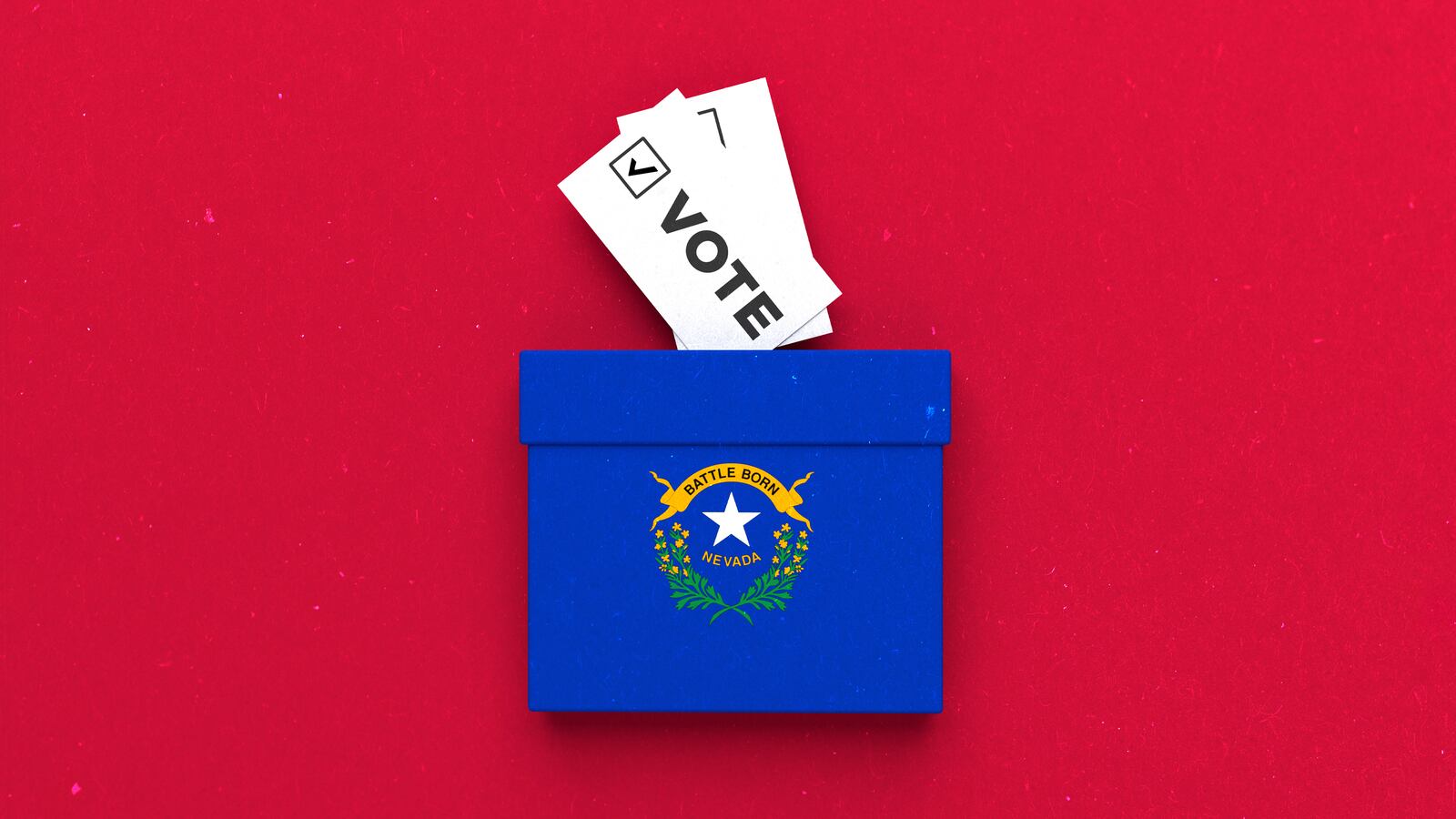With a decision just weeks away on which state will lead the nominating contests in the next presidential election, Nevada is making its closing argument to replace Iowa as the first in the nation to vote.
After a lengthy delay in the Democratic National Committee’s decision over the summer, Nevada Democrats are brandishing a new weapon in their final fight: Nevada delivered Democrats the Senate this midterm cycle.
And they're not about to let the party forget it.
Sen. Catherine Cortez Masto was one of the Senate’s most vulnerable Democratic incumbents. She was up against Trump-endorsed Republican Adam Laxalt, whose father and grandfather were U.S. senators, giving him widespread name ID in the reliably purple state. As of the latest numbers, Cortez Masto won by just under 1 percentage point.
In the House, Democrats won three of the state’s four congressional seats, not losing any incumbents and helping ward off a red wave.
Now, Nevada Democrats say those wins are yet another proof point they should go first. In their view, they’ve proven to nominate strong Democrats who can win close, competitive contests, and would be a trustworthy and diverse base to set the tone for Democrats’ presidential primaries.
“No other state being considered is best-fit to be the first other than Nevada, and the numbers just keep speaking for themselves, especially with the midterm election results,” said Emmannuelle Leal-Santillan, communications director for Somos Votantes, a group focused on Latino-voter engagement.
“Nevada is probably the most consistently competitive battleground state in the country.”
While Nevada is focusing on Democrats for their argument, winning the argument with the DNC would likely have the effect of giving Nevada the nominating contest for Republicans, too, given the costs associated for any state in holding different primary dates for the parties.
But Nevada is focusing on Democrats because they have an argument that’s likely to have more traction with Democrats than Republicans: diversity.
The intention in potentially moving away from Iowa as the first nominating state in the nation is to reflect the growing diversity of the Democratic electorate. Iowa, for all its presidential primary lore—including the state fair and its iconic diners—is overwhelmingly white. It is 90.1 percent white, to be exact, according to recent census data. New Hampshire, which traditionally holds the first in the nation primary a week after the Iowa Caucuses, is 92.8 percent white.
Much of Nevada’s case before—and still after—the midterms has been based on its diversity. The state has large Latino and Asian American populations. It’s also arguably more reflective of Democrats’ economic base of voters, as the state is broadly working class, with Las Vegas’ tourism industry making up huge swaths of the economy. It’s ultra-union-friendly and has a mix of rural and urban areas.
Nevada has roughly the same population numbers as Iowa—around 3 million residents each—although Nevada’s residents are at times more spread out, given the state’s larger geographic size, which could be daunting for candidates to manage.
The state does, however, have relatively easy access to voting, which the DNC has outlined as part of its criteria amid some Republican-led states restricting voting access over the past year.
“We did not win every race, but we proved our ability to grind out important general election victories even in a tough political environment,” Rebecca Lambe, a Nevada Democratic strategist, wrote in a memo after the midterms that was reportedly sent to members of the members of the DNC’s Rules and Bylaws Committee. The Committee is meeting Dec. 1-3 to make an official recommendation on which state should go first.
“For Democrats, choosing a president to lead America should start with a state that looks like America. This process is an opportunity to make that happen,” Lambe later added.
Both campaign arms for the Congressional Hispanic Caucus and the Congressional Asian American and Pacific Islander Caucus have endorsed Nevada to go first.
But Nevada isn’t without competition.
For one, neither Iowa nor New Hampshire are keen to giving away their spots in the primary calendar. For another, there are other states who want the honor.
Michigan has been making the case hard, and political leaders there have long argued their state should go first. The Great Lakes State could elevate a Midwestern perspective that would likely align more closely with the traditional Iowa appeal, as compared to Nevada or New Hampshire. And Democrats there have a midterms argument to make, too. They just delivered Gov. Gretchen Whitmer a second term and flipped control of the state legislature.
But those against Michigan say it’s too dense—with roughly 10 million residents, making it potentially less manageable for primary campaigns. Advocates for the state, however, say its racial diversity and varying industries from manufacturing to farming give it good reason to be first. Rep. Debbie Dingell (D-MI), who’s picked up the effort from now-deceased lawmakers like former Sen. Carl Levin (D-MI), suggested earlier this year that the state is a “mini-America.”
Whichever state does take the helm for Democrats is bound to shake up the traditional politicking of presidential hopefuls. Bethany Khan, communications director for the Culinary Union in Nevada, told The Daily Beast candidates would need to come prepared with economic plans in particular to win over Nevadan votes.
“We bring candidates back to: What is your economic agenda? What are you going to be talking [about] with working people? And what are your plans to put forward worker-centered policies?” she said.
Asked whether she feels confident Nevada Democrats have made a winning case, Khan expressed no doubts.
“The path for a Democrat to the White House runs through Nevada,” she said.








